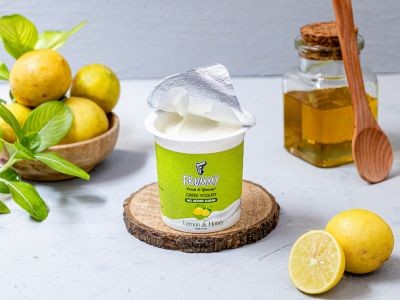In recent years, the demand for dairy alternatives has surged, driven by dietary restrictions, lactose intolerance, ethical choices, and the pursuit of a healthier lifestyle. Whether you’re vegan, lactose-intolerant, or simply exploring new options, the market offers a variety of milk alternatives to suit your needs. In this comprehensive guide, we’ll explore some of the most popular and nutritious dairy alternatives available today.
1. Almond Milk
Nutritional Profile: Almond milk is low in calories and contains healthy fats, vitamins E and D, and calcium. It is also naturally lactose-free and suitable for vegans.
Taste and Uses: Almond milk has a slightly nutty flavor and a creamy texture, making it a versatile choice for smoothies, coffee, baking, and cereal. Its subtle taste complements both sweet and savory dishes.
Benefits: Almond milk is an excellent source of vitamin E, an antioxidant that helps protect cells from damage. It’s also low in calories, which can aid in weight management.
2. Soy Milk
Nutritional Profile: Soy milk is rich in protein, comparable to cow’s milk, and contains essential amino acids. It is fortified with vitamins and minerals, including calcium, vitamin D, and B12.
Taste and Uses: Soy milk has a creamy consistency and a mild bean-like flavor. It works well in coffee, tea, smoothies, and cooking. Its protein content makes it a suitable replacement for cow’s milk in recipes.
Benefits: Soy milk is a complete protein source and helps in muscle repair and growth. It’s also beneficial for heart health due to its low saturated fat content.
3. Oat Milk
Nutritional Profile: Oat milk is high in fiber and beta-glucans, which can lower cholesterol levels. It is also fortified with vitamins A, D, and B12 and calcium.
Taste and Uses: Oat milk has a naturally sweet and mild flavor, with a creamy texture that is ideal for coffee, tea, and smoothies. It also works well in baking, adding moisture and flavor to baked goods.
Benefits: Oat milk is great for heart health due to its high fiber content. It is also suitable for individuals with nut or soy allergies.
4. Coconut Milk
Nutritional Profile: Coconut milk is high in saturated fats, specifically medium-chain triglycerides (MCTs), which can provide a quick energy source. It contains vitamins C, E, and several B vitamins.
Taste and Uses: Coconut milk has a distinct, sweet, and tropical flavor. It is perfect for curries, soups, smoothies, and desserts, adding a rich and creamy texture.
Benefits: The MCTs in coconut milk can boost energy and support brain health. Its high-fat content also makes it a good option for those following a ketogenic diet.
5. Rice Milk
Nutritional Profile: Rice milk is lower in protein but higher in carbohydrates compared to other milk alternatives. It is often fortified with vitamins and minerals, including calcium, vitamin D, and B12.
Taste and Uses: Rice milk has a naturally sweet taste and a thin, watery consistency. It is best used in smoothies, cereal, and light baking recipes.
Benefits: Rice milk is hypoallergenic, making it a safe choice for individuals with multiple food allergies. It is also easy to digest.
6. Cashew Milk
Nutritional Profile: Cashew milk is low in calories and provides healthy fats, vitamins E and K, and magnesium. It is often fortified with calcium and vitamin D.
Taste and Uses: Cashew milk has a rich, creamy texture and a slightly nutty flavor. It is excellent for creamy soups, sauces, coffee, and smoothies.
Benefits: Cashew milk is rich in antioxidants and healthy fats, which can support heart health and reduce inflammation.
7. Hemp Milk
Nutritional Profile: Hemp milk is a good source of omega-3 and omega-6 fatty acids, protein, and essential amino acids. It is also fortified with calcium, vitamin D, and B12.
Taste and Uses: Hemp milk has a slightly earthy and nutty flavor with a creamy consistency. It works well in smoothies, cereal, and baking.
Benefits: Hemp milk is beneficial for heart health due to its balanced fatty acid profile. It also supports skin health and immune function.
Conclusion
Exploring dairy alternatives for milk opens up a world of nutritious and delicious options. Whether you choose almond, soy, oat, coconut, rice, cashew, or hemp milk, each offers unique benefits and flavors to enhance your diet. As the demand for plant-based products grows, so does the variety and availability of these milk alternatives, making it easier than ever to find the perfect match for your needs. Embrace these alternatives and enjoy the health benefits they bring to your lifestyle.





